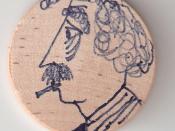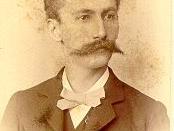Kurt Vonnegut is well-known for his satirical tone of war, American stubbornness, and equality and use of futuristic time periods. Vonnegut is able to persuade people into seeing his way in modern times because of how his stories seem to really hit home (home equals America as a whole). Interestingly, many of the issues that Vonnegut weaves into his stories portray major present day issues. "[He] has typically used science fiction to characterize the world and the nature of existence as he experiences them" as seen in his depictions of war, overpopulation, and the controversy concerning governments' intrusion into peoples' lives (Reed 1). Vonnegut uses his satirical tone and specific settings to "suck in" the reader to make them see from his point of view. He projects these methods of expression in his short stories: "Welcome to the Monkey House", "Harrison Bergeron", and "2BRO2B". Much of the change he wanted dealt with the continuous and brutal wars mankind wages.
Because of Kurt Vonnegut's experience as a soldier and prisoner of war, some of his later work focused on satirizing war ("Kurt Vonnegut" 1).
When satirizing about war in "Slaughterhouse-Five", Vonnegut blended irony with seriousness and drollery. To begin, he adds himself in the first chapter where he gives a short preview about his war experiences:
All this happened, more or less. The war parts anyway, are pretty much true. One guy I knew really was shot in Dresden for taking a teapot that wasn't his. Another guy I knew
really did threaten to have his personal enemies killed by hired gunmen after the war. And so on. I've changed all the names. (Vonnegut, Slaughterhouse 1)
The next time he shows up in the story is when he jumps to talking about latrines in a prison...


